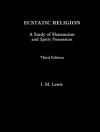How do the history of religion and the history of political freedom relate to each other? The variety of views on this subject in philosophy, the humanities and social sciences, and the public is broad and confusing. But the grandiose synthesis in which Hegel brought together Christianity and political freedom is still an enormous source of orientation for many-despite or even because of the influential provocations of Friedrich Nietzsche. As Hans Joas shows in Under the Spell of Freedom, a different view has developed in the religious thinking of the twentieth century based on a conception of history that is more open to the future and on a concept of freedom that is richer than that of Hegel. Using sixteen selected thinkers, Joas deconstructs the grand Hegelian narrative of human history as the self-realization of the idea of freedom, setting as a counterpart the sketches of a theory of the emergence of moral universalism. Further, taking the classical views of Hegel and his emphasis on the role of Protestant Christianity and the extremely negative views about Christianity in the work of the philosopher Friedrich Nietzsche, Joas elaborates on this new understanding of religion and freedom, which avoids both Eurocentrism and an intellectualist view of religious faith and practice. The result is a forceful plea for a global history of moral universalism. Under the Spell of Freedom is an important step in this direction.
Hans Joas
Under the Spell of Freedom [EPUB ebook]
Theory of Religion after Hegel and Nietzsche
Under the Spell of Freedom [EPUB ebook]
Theory of Religion after Hegel and Nietzsche
قم بشراء هذا الكتاب الإلكتروني واحصل على كتاب آخر مجانًا!
لغة الإنجليزية ● شكل EPUB ● ISBN 9780197642177 ● الناشر Oxford University Press ● نشرت 2024 ● للتحميل 3 مرات ● دقة EUR ● هوية شخصية 9368764 ● حماية النسخ Adobe DRM
يتطلب قارئ الكتاب الاليكتروني قادرة DRM












